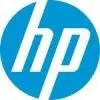Overview
What is Dell SC Series / Compellent (discontinued)?
Since it's acquisition in 2011 Compellent became a Dell product line of storage solutions (e.g. Dell Compellent Storage Center). Compellent products became part of the Dell EMC SC Series of enterprise flash and SAN storage devices and are now EOL.
Recent Reviews
Product Details
- About
- Tech Details
- FAQs
What is Dell SC Series / Compellent (discontinued)?
Since it's acquisition in 2011 Compellent became a Dell product line of storage solutions (e.g. Dell Compellent Storage Center). Compellent products became part of the Dell EMC SC Series of enterprise flash and SAN storage devices and are now EOL and replaced by the PowerStore array.
Dell SC Series / Compellent (discontinued) Technical Details
| Operating Systems | Unspecified |
|---|---|
| Mobile Application | No |
Frequently Asked Questions
Since it's acquisition in 2011 Compellent became a Dell product line of storage solutions (e.g. Dell Compellent Storage Center). Compellent products became part of the Dell EMC SC Series of enterprise flash and SAN storage devices and are now EOL.
Reviewers rate Simplicity and Power Savings highest, with a score of 9.
The most common users of Dell SC Series / Compellent (discontinued) are from Enterprises (1,001+ employees).


